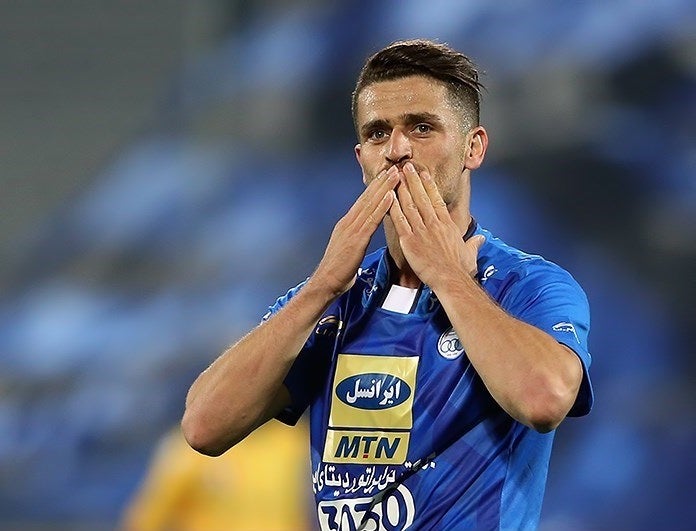Voria Ghafouri: Iranian footballer summoned by authorities after slamming foreign minister
‘Mr Zarif, you who say that you are proud you are under pressure because of Palestine, Lebanon, Yemen and Syria, know that it’s not you who is under pressure,’ footballer wrote on Instagram

Your support helps us to tell the story
From reproductive rights to climate change to Big Tech, The Independent is on the ground when the story is developing. Whether it's investigating the financials of Elon Musk's pro-Trump PAC or producing our latest documentary, 'The A Word', which shines a light on the American women fighting for reproductive rights, we know how important it is to parse out the facts from the messaging.
At such a critical moment in US history, we need reporters on the ground. Your donation allows us to keep sending journalists to speak to both sides of the story.
The Independent is trusted by Americans across the entire political spectrum. And unlike many other quality news outlets, we choose not to lock Americans out of our reporting and analysis with paywalls. We believe quality journalism should be available to everyone, paid for by those who can afford it.
Your support makes all the difference.A popular Iranian footballer has been summoned by authorities after criticism of the country’s regional policies prompted a rebuke by the country’s supreme leader.
Voria Ghafouri, 31, a right back for Tehran football team Esteghlal, appeared to criticise Iran’s hardline foreign policy in an Instagram post and interview last week.
Addressing foreign minister Mohammad Javad Zarif, he said the country’s policies on the Israeli-Palestinian conflict, Lebanon, Yemen and Syria were hurting ordinary Iranians.
“Mr Zarif, you who say that you are proud you are under pressure because of Palestine, Lebanon, Yemen and Syria, know that it’s not you who is under pressure,” he said in an Instagram post to his 730,000 followers that has since been removed. “In reality it’s ordinary people that are under pressure.”
“It’s as if they they’re throwing salt on the people’s pain and wounds,” he said in an interview after being asked to explain his comments. “All people are under pressure, and they [the leadership] say things that make things worse.”
Supreme leader Ali Khamenei responded swiftly. In a speech commemorating the deaths of 27 Revolutionary Guard personnel killed in a recent suicide bomb attack, he took the athlete to task.
“Some people who take advantage of the country’s security to work and play sport should know that this is how security is ensured,” he was quoted as saying.
Hours later the Ministry of Sport and Youth summoned Ghafouri for questioning. The minister of sports, Bijan Zolfagharnasb, publicly asked athletes to stop commenting on political affairs.
The clash between the ayatollah and the star footballer underscores looming tensions between the Iranian authorities and a restless population unnerved by the country’s economic troubles and growing geopolitical isolation. Polls show that while many Iranians blame the US for Iran’s economic troubles, more blame the country’s own corruption and incompetence.
An ethnic Kurd who is a native of the city of Sanandaj, near the Iraqi border, Ghafouri is signed to one of the football-mad country’s top teams and has also played for the national team in international competitions.
Authorities must play a delicate balancing act. Putting too much pressure on him could backfire. Fans have already rallied around Ghafouri on social media, launching hashtags in his support on Twitter and Instagram.
But allowing Ghafouri to walk away unscathed by the controversy also carries risks, by opening a floodgate of domestic criticism at a time when the nation is already under threat by reinvigorated US sanctions.
“Why should I be afraid?” Ghafouri said at the interview when asked by a journalist whether he feared retribution for his criticism. “Did I say anything bad that should make me afraid?”
Join our commenting forum
Join thought-provoking conversations, follow other Independent readers and see their replies
Comments